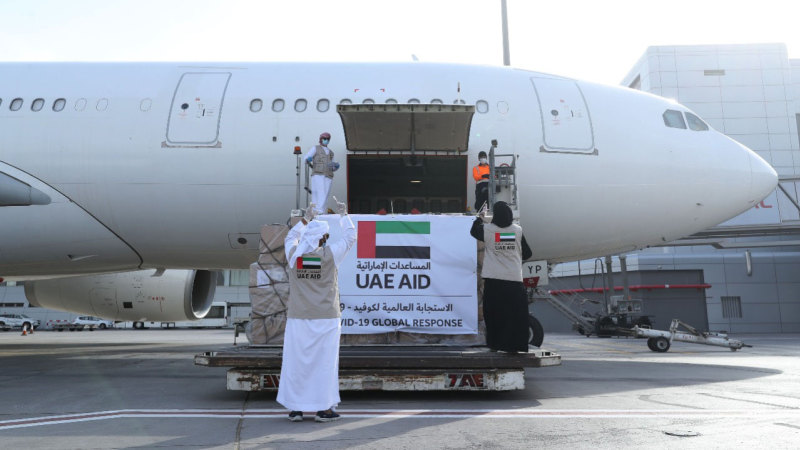FRESH AIR
The price Palestinians pay for anti-normalisation
June 3, 2020 | Sharyn Mittelman

It is obvious that for genuine peace to be achieved between Israelis and Palestinians there must be cooperation and reconciliation between the two peoples. However, in current Palestinian politics, any such cooperation has often been deemed “collaboration” or worse “normalisation”, something portrayed as essentially a form of treason to the Palestinian cause. This reality significantly undermines peace prospects, as AIJAC has previously discussed.
At a governmental level, the Palestinian Authority (PA) decided last month to end security cooperation with Israel, in response to Israeli plans to potentially apply, to some extent, sovereignty to the Jordan Valley and settlements in the West Bank under the Trump Administration’s peace plan. PA Prime Minister Mohammed Shtayyeh has said that the end of security cooperation with Israel would also mean that Palestinians would no longer be treated in Israeli hospitals and will instead receive medical care in the Palestinian territories. According to a report from the Washington Post, this is already happening, with those seeking PA permits to be treated in Israel being turned away by Palestinian Authorities.
The animosity runs so deep that the PA even rejected a shipment of critical medical supplies from the UAE to help with the coronavirus pandemic, including ten ventilators and personal protective equipment, because its method of arrival was seen as “normalising” relations between the UAE and Israel. The aid arrived in the first-ever direct flight from the UAE to Israel. Explaining the decision, the PA Health Ministry medical services director Osama al-Najjar said, “The Emirates did not coordinate with us in the slightest, they worked with Israel alone.” Adding, “We cannot accept shipments that are a gateway to normalisation between Arab countries and Israel.” The UN is now planning to bring the UAE aid to the Palestinians.
Meanwhile, Hamas, which controls the Gaza Strip, has also long railed against normalisation. In April, Hamas arrested local peace campaigners for treason after they held a Zoom call with Israeli activists. Hamas spokesperson Eyad al-Bozom said that Palestinian campaigner Rami Aman and others had been detained on charges of “establishing normalisation activities with the Israeli occupation via the internet”. He added, “Any activity or communication with the Israeli occupation under any cover is a crime punishable by law, and a betrayal of our people and their sacrifices.” Hamas has previously arrested Aman for holding a Palestinian-Israeli bicycle marathon on both sides of the frontier to protest Israel’s blockade of Gaza.
Hamas leader Ismail Haniyeh appears especially concerned by growing friendly relations between Israel and the Gulf states and has called for “practical steps to criminalise and ban all forms of normalisation and prevent the enemy from infiltrating Arab and Islamic capitals.”
The campaign against normalisation has become so entrenched in Palestinian society that Palestinians who were recently sharing an iftar meal to end the Ramadan fast with Israelis were reportedly branded as “traitors” by many Palestinian websites. To condemn such meals, the Palestine Information Center reportedly ran a cartoon in which a Palestinian infant, soaked in blood, is lying on a plate decorated with the Israeli flag.
The campaign has even been directed at a Saudi Arabian television series, “Umm Haroun” (“Mother of Aaron”), about Jewish residents of Kuwait in the 1930s and 40s, because it “humanised” Jews. The Palestine Scholars Association, affiliated with Hamas and Palestinian Islamic Jihad, issued a ruling banning Muslims from watching any television programs that “promote normalisation with the occupation,” adding, “We clearly say that watching these channels is forbidden by law and boycotting them is a legal and religious duty.”
However, there has been some push back in the Middle East to Palestinian anti-normalisation extremism. On social media, Saudis who were unhappy with Palestinian criticisms of their country responded by trending the hashtag “#The_Palestinian_cause_is_not_my_cause.”
The anti-normalisation campaign is also at work in sports where Iran has long forced its athletes to refuse to compete against Israelis, leading some Iranian athletes to flee Iran.
It also affected the career of star Arab Israeli soccer player Abdallah Jabar. He was recently kicked out of the Palestinian national soccer team after signing up to play with the Israeli team Hapoel Hadera. Jabar’s Israeli citizenship also prevented him from signing with Egyptian teams in 2016.
When Palestinian leaders promoting anti-normalisation campaigns that bar Palestinians from receiving necessary medical treatment, getting the best players for the Palestinan national team, eating a meal with Israelis or watching a TV show which portrays Jews as human beings, they are clearly shooting in the foot not only the cause of peace, but the welfare of Palestinians themselves.
Tags: Israel, Palestinian
RELATED ARTICLES

US Middle East strategy amid regional instability: Dana Stroul at the Sydney Institute

Antisemitism in Australia after the Bondi Massacre: Arsen Ostrovsky at the Sydney Institute





















